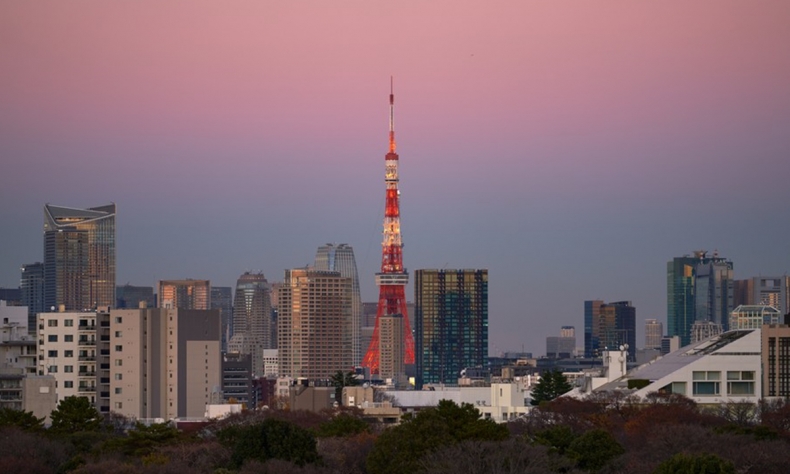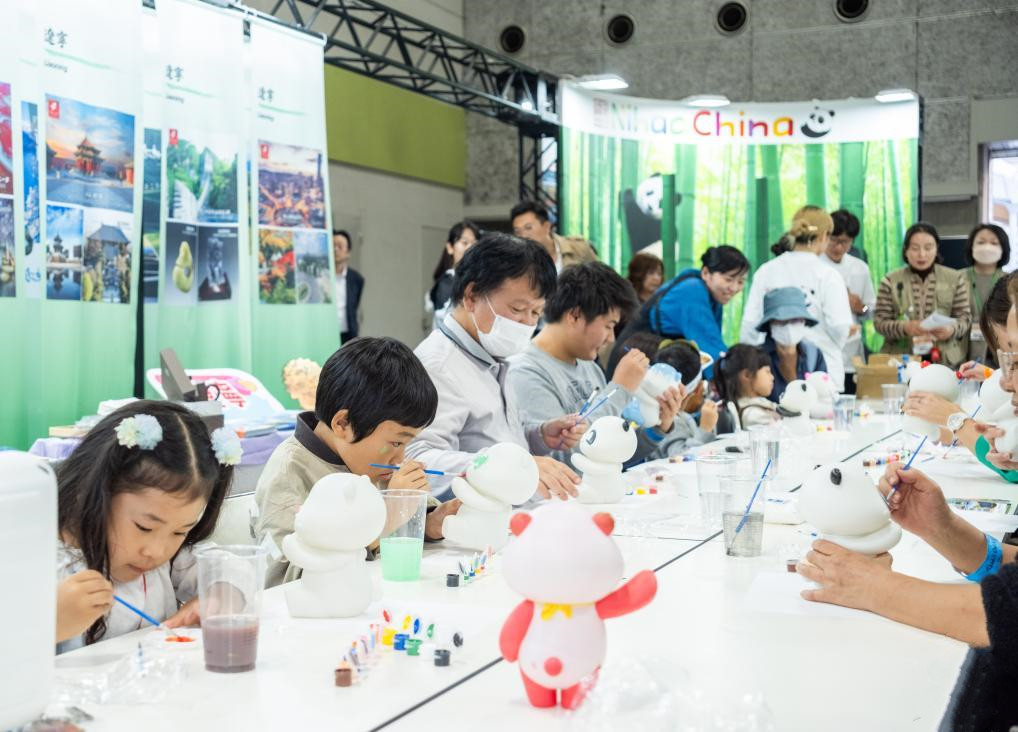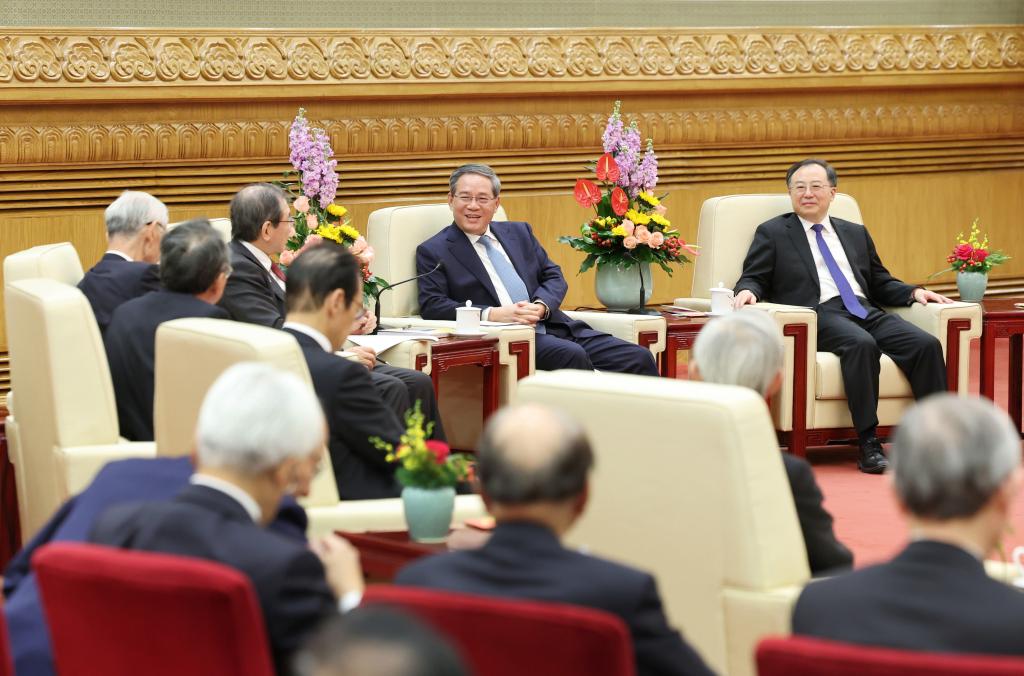Japanese Companies Maintain Increasing Investment Inclination Toward China

The two leaders reaffirmed the commitment to building a constructive and stable China-Japan relationship fit for the new era, stressing the consensus that the two countries should be ‘partners, not threats’ must be translated into concrete policy and action.
According to data released by the Cabinet Office of the Japanese Government on February 15, the country’s GDP shrank at an annualized pace of 0.4 percent in the last three months of 2023 after having contracted by an annualized 3.3 percent, causing it to lose its position as the world’s third largest economy to Germany.
One month ago, a report from the Japanese Chamber of Commerce and Industry (JCCI) in China was released, pointing out that Japanese companies operating in China perceived a modest improvement in its economic performance in 2023.
More than half of Japanese companies increased or maintained their investments in China last year and 88 percent of the companies surveyed considered China one of their most important markets globally, the report said, adding most Japanese companies hope to see the visa-free entry policy for Japanese citizens resumed soon.
Chairman of the JCCI in China Tetsuro Homma spoke at the chamber’s release of the report. Homma, who is also an executive vice president at Panasonic Holdings, reflected on the 45 years since China’s reform and opening up started in 1978, expressing confidence that Japanese businesses in China have not only matured but will continue to thrive. “My perspective has remained steadfast,” he said.
“Obviously, China boasts a colossal economy, with a GDP four times that of Japan,” Homma added, emphasizing the anticipation among Japanese companies for partaking in China’s economic growth.
Growing satisfaction
The chamber invited 8,000 Japanese companies doing business in China to participate in the survey between November 23 and December 13, 2023, from which it collected 1,713 responses. The survey covered a wide range of industries from electronic machinery to chemicals, food and medicine.
Approximately 38 percent of Japanese companies reported maintaining the same investment level in China last year as in 2022. Another 15 percent indicated an “increase” or a “significant increase” in their investments.
The rationales behind the increases in investments include expanding business operations in the wake of the COVID-19 pandemic, aligning with the electrification and intelligence trends in the automotive industry, and enhancing efficiency and functionality through automation.
Around 54 percent of the companies surveyed said they are satisfied with the business climate in China, up 3 percentage points compared with the chamber’s previous survey conducted last October.
Respondents to the latest survey said slight improvement of their business in China is being made. According to the survey, 51 percent of the companies consider China to be their “most important market” or “one of the three most important markets,” while 37 percent consider China to be “one of their important markets.”

A noteworthy shift is in the impact of the global geopolitical environment on the companies’ operations in China, which decreased by 20 percentage points to 42 percent. The JCCI told Chinese media outlet Caixin that the survey coincided with meetings between the leaders of China, the United States and Japan, which contributed to the confidence expressed by respondents.
On the sidelines of last year’s Asia-Pacific Economic Cooperation (APEC) Economic Leaders’ Meeting, Chinese President Xi Jinping met with Japanese Prime Minister Fumio Kishida in San Francisco, the U.S., on November 17, 2023. The two leaders reaffirmed the commitment to building a constructive and stable China-Japan relationship fit for the new era, stressing the consensus that the two countries should be “partners, not threats” must be translated into concrete policy and action.
Invest in China Year
The Chinese Ministry of Commerce launched a series of business and investment promotion activities in 2023 under the banner “Invest in China Year.” The ministry aimed to show potential investors from around the world investment opportunities and comparative advantages of China’s regions, showcase a more diverse and inclusive China as it develops and opens up, and build a platform that fosters cooperation with international investors.
Homma told the event launching the survey that he and the chamber’s Vice Chairman Toshihiro Ueda attended as many Invest in China Year events as possible throughout 2023. The goal was to help Japanese companies in China convey their voices and foster increased engagement with the market.
“It’s crucial that foreign-funded companies actively participate in diverse events organized by the Chinese Government to facilitate dialogue. The Invest in China Year activities include not only official conferences but also informal gatherings involving government representatives at all levels and business entities from many nations. Local governments attentively consider perspectives from all quarters,” Homma said.
He also stressed the importance of the 24-point guidelines issued by China’s State Council, the country’s highest state administrative organ, to encourage foreign investment. “The authorities are so eagerly absorbing feedback from those companies, and their responsiveness has deeply impressed us,” he noted.
The JCCI in China co-organized a visit to China in January by a delegation made up of 200 Japanese company representatives, including the heads of three influential Japanese business groups, i.e., the Japan Business Federation, Japan Chamber of Commerce and Industry and Japan-China Economic Association. Chinese Premier Li Qiang met the delegation in Beijing on January 25.
Li emphasized the intricate interconnection between China and Japan’s economies, highlighting that their economic collaboration forms the foundation of bilateral relations. China expresses a willingness to unlock development potential and collaborate with Japan, extending opportunities for mutual benefit. The focus is on enhancing cooperation in technological innovation, digital economy, healthcare, senior care, and beyond. Joint efforts are being directed at maintaining the stability and effectiveness of industrial and supply chains.

Calling for visa-free travel
“We have a feedback program in our chamber titled Companies’ Voices, and out of 600 items of feedback, 100 advocated for the resumption of China’s visa-free policy,” Ueda said.
If the rule on visa-free entries to China were to be resumed—and the Japanese coming and going from China made more convenient—there would be an opportunity to expand business, the report accompanying the survey said.
In 2003, China began allowing Japanese visitors to enter without a visa for 15 days, but the policy was suspended in March 2020 at the onset of COVID-19.
China began relaxing some of its entry requirements last year, including introducing visa-free entry for select countries, in line with efforts to revive international exchange and drive up foreign investment inflows.
During a regular press conference of the Chinese Foreign Ministry on January 29, a Nikkei financial newspaper correspondent in China inquired about the conditions necessary for the resumption of the visa-free policy for Japan. Many Japanese companies are eager to see the swift resumption of this policy.
In reply, spokesperson Wang Wenbin highlighted China’s efforts in increasing access for overseas visitors, including Japanese citizens. “We will intensively look into the requests from all sectors in Japan for resuming the visa-free policy to travel to China. We hope that Japan can work with us in the same direction to make cross-border travel between our two countries easier,” he said.
Last year was the 45th anniversary of the signing of the Treaty of Peace and Friendship Between China and Japan. Last November saw the two leaders reaffirm the two countries’ commitment to “comprehensively promoting a strategic relationship of mutual benefit,” Homma said.
He emphasized the geographical and psychological proximity between China and Japan, and that the ease of travel facilitates quick solutions to problems.
“Traveling from Kyushu to Tokyo for business is no farther than from Kyushu to Shanghai, China. This convenience allows for quick issue resolution and maintains smooth communication [for businesses] with their headquarters,” Homma added.
 Facebook
Facebook
 Twitter
Twitter
 Linkedin
Linkedin
 Google +
Google +










